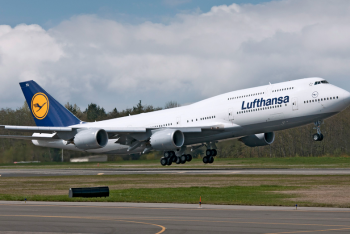
Trouble for travel agencies?
At Montgomery, we have often discussed market power as a driver of competitive advantage. Last week a major player in the travel industry launched a campaign to assert dominance, which, if successful, could have profound implications for Flight Centre (ASX: FLT) and Webjet (ASX: WEB).
Lufthansa, the largest Airline in Europe, has announced a surcharge of 16 euros for every ticket issued by external booking providers. Global Distribution Systems (GDS) connect travel operators to travel agents, allowing users to coordinate travel across multiple providers without relying on individual systems. This arrangement was initially favourable to the transport operators, as they could outsource what was a non-core service to focus on critical competencies.
Unfortunately, the power of virtuous circles has allowed a handful of GDS providers to dominate the market, including Sabre, Travelport and Amadeus. (It’s rather ironic that Amadeus was borne from a neutral partnership between Air France, Iberia, Lufthansa and SAS to compete with the American Sabre). Lufthansa has since determined that the hundreds of millions of dollars it pays Global Distribution Systems each year is not generating sufficient value, and is attempting to wrestle back control.
Amadeus has claimed that the surcharge may ultimately be passed on to the traveler, putting the travel agent and/or the end consumer at a disadvantage. If other transport operators follow Lufthansa’s lead, it may result in margins being squeezed across the industry, which could have material implications for online and offline travel agencies like Flight Centre and Webjet.
However, history has shown the resilience of virtuous circles, and we will be watching with interest to see if this one can be broken.
Ben MacNevin is an Analyst with Montgomery Investment Management. To invest with Montgomery, find out more.
This post was contributed by a representative of Montgomery Investment Management Pty Limited (AFSL No. 354564). The principal purpose of this post is to provide factual information and not provide financial product advice. Additionally, the information provided is not intended to provide any recommendation or opinion about any financial product. Any commentary and statements of opinion however may contain general advice only that is prepared without taking into account your personal objectives, financial circumstances or needs. Because of this, before acting on any of the information provided, you should always consider its appropriateness in light of your personal objectives, financial circumstances and needs and should consider seeking independent advice from a financial advisor if necessary before making any decisions. This post specifically excludes personal advice.
INVEST WITH MONTGOMERY
Ben, I think the only selling point for Travel Agencies these days, like Flight Centre, is that they understand what the client wants, and through knowledge and professional experience etc, they can offer additional value over and above what the “cost” is.
For example, there’s little money to make selling tickets on AirAsia to Malaysia, more to be made about packaging an experience for someone to travel from Singapore to Butterworth in Malaysia and helping people choose stops and things to do on the way.
What the technology does provide is alternative methods that you can use to plan out and find out costs – you can even do it yourself using matrix.itasoftware.com or skyscanner.com and this gives price information to the market, but in a complicated world, what travellers want is experiences.
Websites also don’t work in situations with Business travel or in large groups. Qantas and Virgin always target the pointy end because that’s where the money is made. There are agencies that just prioritize and focus on providing corporate clients with their optionality.
I think that FLT is better position because they’ve been feeling the “pain” of this increase in pricing information in the market and have adapted to provide its clients with “Experience” while Webjet is just another aggregator that can easily be disrupted.
I mean how many agoda/expedia/travel.com/booking.com/kayak.com/webjets/skyscanners do you think that are really needed.
There are as many places to buy a ticket from a machine as you can imagine, but value only added by real human understanding.
Why else you think Flight Centre on their emails say: “I’ve been to Puerto Rico, Brazil, Canada etc etc”
And the people who sit in these places – they’re airline price sensitive, but they’re also interested in the add value.
Thanks for such an eloquent and considered response Lucas. You’ve raised many valid points, with FLT’s value proposition over generic price aggregators being particularly pertinent.
This case study is fascinating because one player in the supply chain is attempting to exert power in a specific and measurable way. The ultimate success is dependent upon other operators following suit (since Lufthansa’s announcement, Etihad’s CEO has commended Lufthansa for such a brave step, while Air France is considering similar actions).
If successful, travel agencies with GDS connection costs will be affected on some level – as you’ve noted, the opportunity or threat depends on the strength of their individual value offerings.